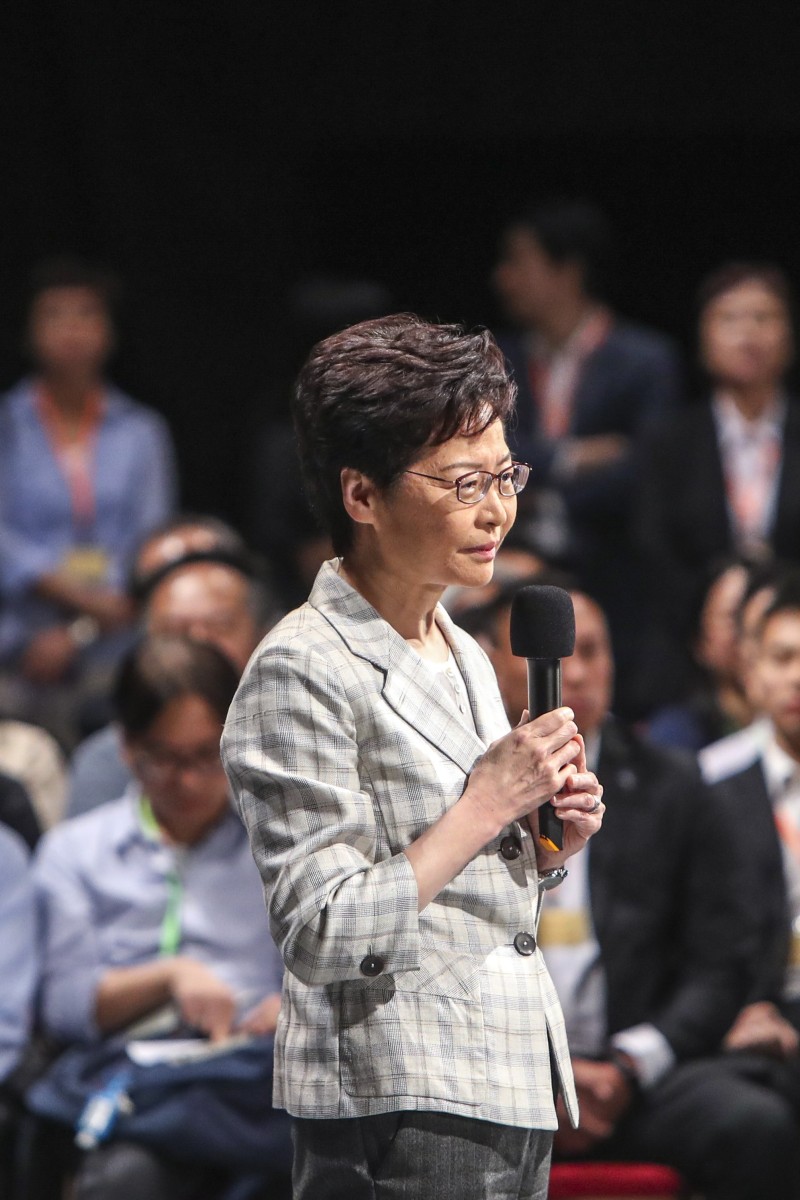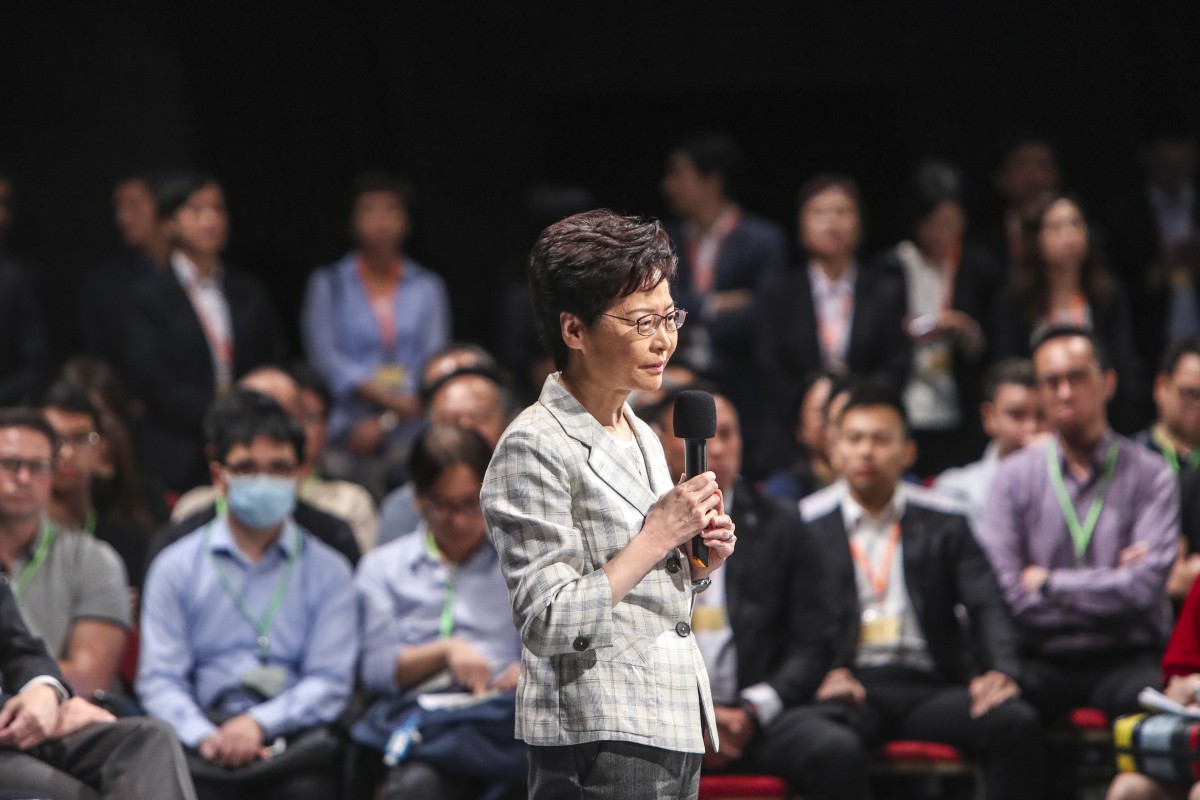
Hong Kong protests: Carrie Lam says no to police inquiry during first community dialogue
Citizens asked her to face demonstrators directly, show sympathy towards people beaten and tear-gassed, and hold top officials accountable
 Hong Kong Chief Executive Carrie Lam meets the public during a community dialogue at Queen Elizabeth Stadium in Wan Chai.
Hong Kong Chief Executive Carrie Lam meets the public during a community dialogue at Queen Elizabeth Stadium in Wan Chai. Chief Executive Carrie Lam Cheng Yuet-Ngor held the first of a series of planned town hall dialogues on Thursday, during which Hong Kong citizens condemned her failures and demanded solutions to end the social unrest in Hong Kong, the main one being an independent inquiry into allegations of police brutality.
Security was tight for the event, with police sources saying more than 3,000 officers had been deployed – at least 100, many in full riot gear, were seen entering the stadium before the 7pm start.
More than 130 participants, picked randomly from more than 20,200 who had applied, had to pass through metal detectors and have their bags screened by X-ray machines. Helmets and gas masks, the signature gear of radical frontline protesters, were banned, and no bottles of any kind were allowed inside.
While roads around the venue had been cleared in advance to prevent chaos, protesters still gathered outside to shout slogans, yelling abuse at police and pointing lasers at them, while those inside took Lam to task.
A Form Six student became emotional as he questioned the chief executive, saying: “Have you ever been sympathetic towards people who were tear-gassed or beaten by police? You only care about turnstiles in MTR stations which were vandalised. You have taught me, a naive person, that peaceful protests cannot make a difference.”
Students form human chains ahead of Carrie Lam's first 'open dialogue'
“There are many protesters outside tonight. Why don’t you face them directly, instead of just picking 150 audience members and giving them three minutes each to speak?” one participant asked.
Another lamented the breakdown of law and order, saying: “National flags and emblems were desecrated. Teachers have anti-police sentiments, while protesters burn MTR stations. I am really heartbroken seeing all this. What kind of signal are we sending to neighbouring regions?”
“Shouldn’t we let IPCC complete its work in a few months, then make a judgment on whether or not we can accept its conclusion?” she replied.
But her interrogators were far from satisfied, with a woman wearing a surgical mask saying: “Police have become a political tool and there is no mechanism to monitor their operations. The IPCC is only a toothless tiger.”
But Lam insisted that protesters’ remaining demands, including a blanket amnesty for those arrested, were not in line with the rule of law.
